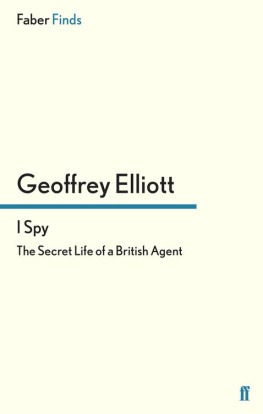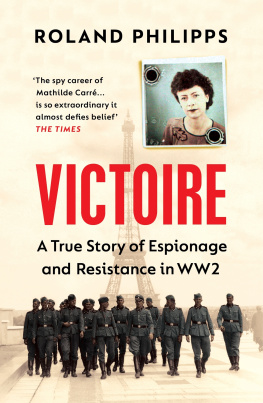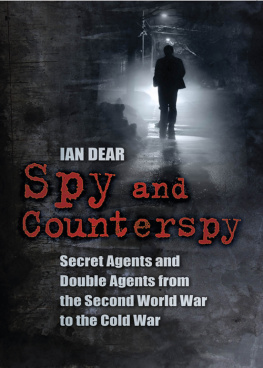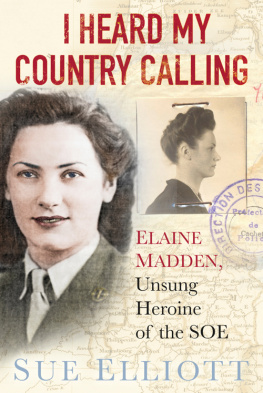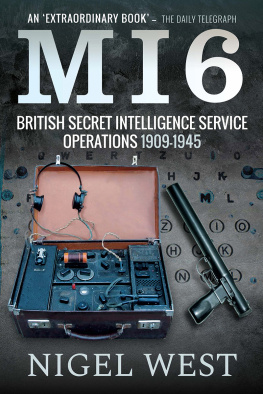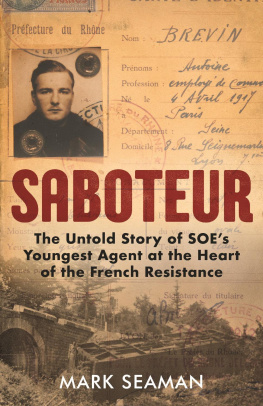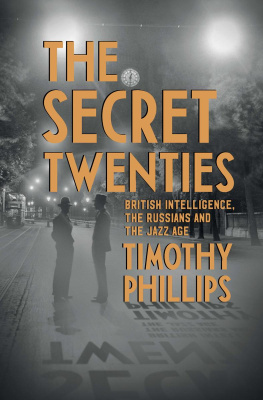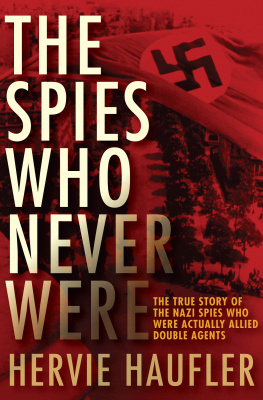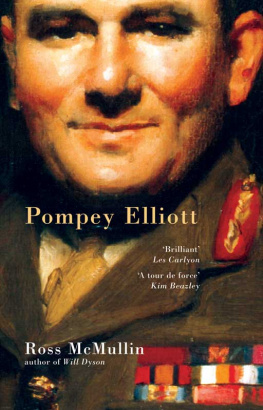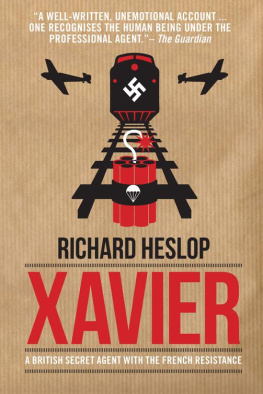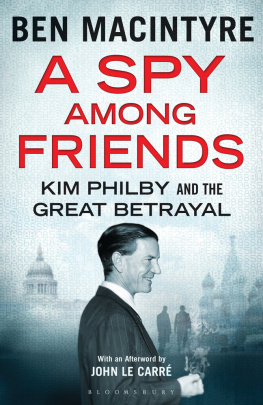Unlike novels, stories about real people seldom end tidily on the last page. So it was with I Spy. Long after it was first published, and I had cleared out the untidy stacks of yellowing and curling documents from which it was pummelled into shape, a diligent young Hungarian researcher named Attila Szrnyi told me he had found in the Hungarian State Security Archives many hitherto hidden pages on my fathers mauvais quart dheure at the hands of the Secret Police. They included a diagram of Elliotts network and furthermore identified Dick a member of the British Secret Intelligence Service (SIS) based outside Hungary who had put the operation together, pulled the strings, and was the case officer to whom the SIS representative in Budapest (Harry Morris) reported.
Rather than deflect readers from the original story I have added these new facts as a Postscript. They clarify, they add colour, but they do not do not change the core narrative.
It is easier to say what this book is not, rather than what it is. It is neither hatchet-job, nor hero-worship. Nor a work of history, though I have tried to provide a minimal historical context for some of what went on. Nor, at least in the conventional sense, is it a spy story; it is, though, the story of a spear-carrier in that down-at-heel theatre of the absurd and the cruel, that blend of The Crazy Gang and Grand Guignol, which is the essence of the espionage world. My father had two wives and several mistresses, but, although they are a key part of the tale, it is not really a love story either, partly because though they all loved him, Im still not sure he loved them back, at least for very long.
I have taken two conscious liberties in the telling; any other errors or unkindnesses are unintended and entirely my responsibility. In the first place, I have not used the real names of Kati and Margit. I had mixed feelings about telling their stories in any case, but could not tell Elliotts without them. For this reason they are not thanked below by name, but I am deeply grateful to them for talking to me and for keeping my father somewhere in their hearts, after everything that happened. One of the oddest conclusions from this whole exercise is my conviction that, had they, my mother and Pamela, his second wife, actually met, they would all have got on rather well.
Second, while not altering the sense, I have used filial licence to put the staccato dictated notes which tell Elliotts side of the story into more readable narrative form.
It is invidious to single out a special category among all the many kind and patient people who helped provide bits of this story, who troubled to reply to my often misguided enquiries, and who allowed me to intrude into lives and memories. I am especially indebted to Sir William Deakin DSO, whose professional and personal generosity were the key to getting started. The postgraduate students who have helped with the archival research, notably Peter Palmer, as well as Neville Wylie, Kyril Haramiyev and Tina Podplatnik, deserve a special vote of thanks, as does the SOE Advisers Office.
Others to whom much is owed include: Rachel Ames, John Austin, Professor Phyllis Auty, Lord Amery of Lustleigh, Richard Aldrich, Monika Bachmann, David Brighty, CMG CVO, Anthony M. Brooks DSO, the late John Bruce Lockhart CMG, Anthony Cavendish, Jonathan Chadwick, Jean and Robert Chapman, Sir Humphrey Cheam, Jean Clissold, Aidan Crawley, George Cushing, Basil Davidson, Sir Douglas Dodds-Parker, Stephen Dorril, Steven Earl, Susan Edwardes, James and Stephen Elliott, Vladimir Farkas, Dominic Flessati, Antonia Gerard, Sir Alexander Glen, Lord Greenhill of Harrow GCMG, Jean Hannant, John Harrison, Don and Nancy Holmes, Peter Lunn, Malcolm Mackintosh, Peter and Helen Makower, Eric van Maurik, Charles Moser, Jim McCargar, Linda Osband, David Price, Renata Propper, Robin Ramsey, Sir Steven Runciman, John Saumarez Smith, George Schoepflin, Stephen Schofield, Lalita Sreenivasan, Maureen Staniforth, Bela Szasz, Antony Terry, Thames Investigation Services, A1 Ulmer, Istvan Vida, Laszlo Vargas, Dr G.P.M. Walker, Auberon Waugh, Phyllis Wender, Mark Wheeler, and Tibor and Judit Zinner.
Practical and moral support has come from all my friends at St Antonys College, Oxford, as well as the Bodleian Library, the Imperial War Museum, the Public Record Office, the National Westminster Bank, the British Council, the Bermuda Public Library, the Marx Memorial Library, the staff of Privatair, in whose high-altitude care much of this has been written, the Concierge Desk of the Ramada, Vauxhall, and almost last but very much not least since they provided one key clue the Barrow-in-Furness branch of the Royal British Legion.
And, towards the end of it all, in a Hertfordshire garden, bordered by birches which could have been transplanted from Russia, I met Vera Broido-Cohn, memorable daughter of a memorable revolutionary couple who were among the leaders of the Yakutsk Uprising. She told me the stories and sang me the songs, making me wish I could open this book up again and focus it far more on the Redstones and their struggle.
That most authors thank their wives for their support I used to regard as little more than a standard courtesy. I know now that without that support, nothing is possible, and I am deeply grateful for it.
This is how it was, as best I can tell.
Kavan, sometimes known as Joe, drove across the Austrian border into Hungary on 8 December 1946 his thirty-eighth birthday, though that was happenstance. Jonapotkivanok.Azutlevelt,legyenszives. Asking an important-looking foreigner for his passport, the scruffy border guard was warily polite. Tessek, the driver replied neutrally, handing over his British passport, its dark blue cover and gilded coat of arms as worn as the injunction from the Foreign Secretary inside the front cover requesting and requiring in haughty italics that, as one of the Kings subjects, the bearer should be allowed to pass, without let or hindrance. As the guard could not read English, or indeed much of anything else, the impotent echo of Empire rather went over his head.
Except when it meant going back into England, crossing any frontier was a birthday present in itself. The rites of passage across the fifty yards of damp tarmac, the thud of stamp on passport, the frowning, suspicious looks of the officials in the limbo between this world and the next, had become an invigorating act of absolution and self-renewal. Love gone rancid, shabby deceits, scrapes over money which, untended, festered like sores into lasting embarrassments, all the crap could be left behind, unwanted small change on the powder-flecked glass top of the dressing-table after another night of sweaty, yeasty promises.

